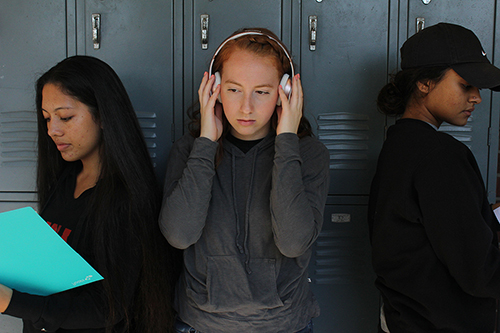I covered the laptop screen with one hand and my mouth with the other, stifling sobs, trying not to wake my roommate at 3 a.m. It was like watching one of my friends take her life. Images of the ‘causes’ of her death flashed against the back of my hand — the boys who led her on, the friends who betrayed her and her parents who never listened. It seemed justified. It seemed rational. This did not lessen the affect the slitting of wrists on camera had on me. Shocked at my state of mind post Netflix binge, I asked the question: what was the point? To place blame? To merely depict daily struggle in televised form? Or to show just what it is like to witness someone, seemingly fine, make a permanent decision to take their life?
The flickering thought of suicide
Reflecting on September’s suicide awareness month, one can recall many stories of loved ones pouring their hearts out over the difficulties of life. The decision, temptation and even flickering thought of suicide is one all too common. Post release of “13 Reasons Why,” the Google search involving ‘ways to commit suicide’ skyrocketed, according to CNN. Numerous psychologists launched into research, determining true appropriate viewing age, consequences of viewership for those unaffected by teen suicide and likeness of incident in those predisposed to depression and suicidal tendencies. Results, as many of us know, were shocking.
CNN stated in their recent interview of the show’s producer, Selena Gomez, that the themes of suicide in “13 Reasons Why” may become oversimplified if only bullying is attributed as the main cause. Reporter Samantha Highfill further asserts these claims.
“[The show] may make suicide seem romantic by putting it in the context of a Hollywood plot line,” Highfill said in the article. “A simple, logical, and well-connected plotline may satisfy the story arc needs of a viewing audience, but it is rarely, if ever, the way that suicides really happen.”
better to abstain from watching
Due to these, along with numerous other negative reviews of the show and its studied psychological effects on the predominantly young viewership, one would least expect the release of a second season. However, we can expect a new season, coming to us on Netflix in 2018. Gomez stated in her interview that there is still cause for the show to go on including a rapist to be caught, parents to inform and a rape victim to console at the least. Viewers can expect the new season to be less about suicide and more about the aftermath of a life taken.
As Biolans, who seek to integrate our faith into all aspects of life, how do we interact with the release and popularization of shows with themes similar to “13 Reasons Why?” To have followed recommendations and not watched the show would be to remain ignorant, perhaps to the extent of not understanding the experiences of many. Further, would losing this experience cause one to remain unempathetic? However, for a Christian who has dealt with severe depression and suicidal thoughts, or has been a victim of rape, it may in some cases be better to abstain from watching the second season. If watching means attaining the ability to understand a friend’s story, why should we not? But doubly, if watching, having struggled yourself, means sacrificing closing your eyes over graphic scenes, is closure worth it? Is there peace in knowing? Or in ignorance? Stay tuned.







